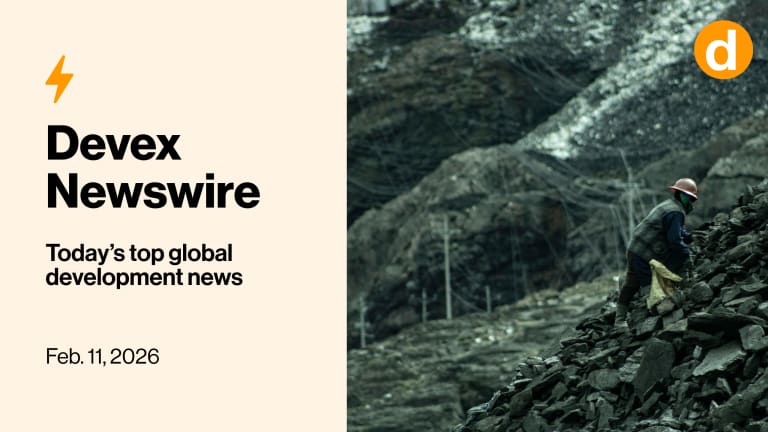
In a recent blog, FHI 360 CEO Patrick Fine observed: “It is time to recognize that human development challenges will exist as long as there are humans … Building resilience is a long-term endeavor that requires ongoing commitment. It is not an end state.”
He was pushing back on that old adage in our international development industry that our organizations are (or should be) working themselves out of a job. As he concluded, there will always be a job for “strong, capable civil society actors.”
I agree with Patrick. There will always be a job. But is it the job we are currently configured to do?
The Sustainable Development Goals have changed that job in profound ways, and most development organizations have not recognized it and are not ready. Recall that the SDGs, in contrast to the Millennium Development Goals, are not just targets designed and agreed to by experts (mostly in the “developed” world) and handed to “poor” and “developing” countries. They are 17 sets of goals that apply universally to every country. And in large part they have come from, have been consulted with and agreed to, by a broad range of stakeholders in almost every country.
If the SDGs are not someone else’s agenda but an agenda vetted and embraced by local actors, the role of international civil society entities like Plan is not — or not just — to provide solutions, sage advice and expertise, but to strengthen the social accountability fabric.
Doing this well means we need to get out of the business of leading and doing and into the business of empowering, capacity building, informing, and connecting.
It means humility, because the voice and the brand that counts is not ours.
It means giving up control. Our job is to create safe and brave spaces for the voices of the vulnerable, the invisible, to ensure the marginalized are heard and to strengthen social accountability structures so their rights are served.
Let’s take Sustainable Development Goal 5, on gender equality, with which Plan International, the organization I represent, is deeply involved. Over the past five years Plan has been leading its Because I am a Girl campaign, focused on getting girls to go and stay in school. In the context of this campaign we did many things — from building infrastructure such as classrooms, wells and separate toilet facilities for girls to providing key products and services including menstrual hygiene management products, teacher training and technology.
In the course of the campaign we learned that the most impactful initiatives we could undertake to support this aim was to empower women and the girls themselves — building their awareness, developing their capacity and self-confidence, expanding their network of peers and mentors, so that they could effectively advocate for their own rights to go and stay in school. In other words, we learned that the most effective agents for energizing and mobilizing governments and communities to invest in girls are the girls themselves.
We are also learning that to be effective in empowering girls and youth we very much need to transform ourselves. We cannot be an organization that is seeking to empower the voice to children and girls if we were not first willing to give a voice to children and youth within our organization. And this has been challenging. Adults are not predisposed to listen to children and young people; we do not like giving up control. But empowering children and youth means being willing to give up control and being willing to open the space for children and youth to influence your own and your organization’s thinking about program design and execution.
At Plan we have changed our structures and staffing from top to bottom to make sure we are not crowding out the voice of children, youth and girls. We have made space in our board rooms for youth. We have invested in staff with expertise in youth engagement and we have trained our staff and board to work and engage with youth in non-tokenistic ways. We involve our youth in the design and evaluation of our programs. We have developed protocols and procedures to help ensure the safety of children and youth advocates when they speak out.
Bottom line: International civil society entities like Plan have an important role to play in in the SDG journey, here in the U.S. and elsewhere. But the SDGs changed the game for all of us.
Remaining relevant requires we give up control so that we may effectively empower others. Remaining relevant requires we transform ourselves so that we can support social transformation. The old paradigm was about external actors pushing harder to increase the short-term results. In the new paradigm, in order to yield more, we actually have to yield more control, responsibility and resources to local leadership.
Join the Devex community and access more in-depth analysis, breaking news and business advice — and a host of other services — on international development, humanitarian aid and global health.
Search for articles
Most Read
- 1
- 2
- 3
- 4
- 5








